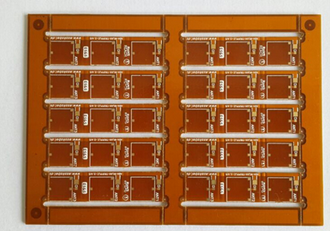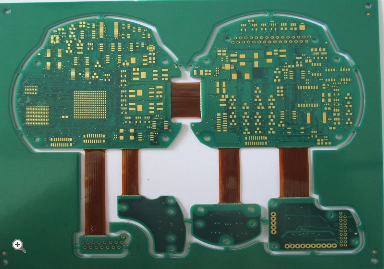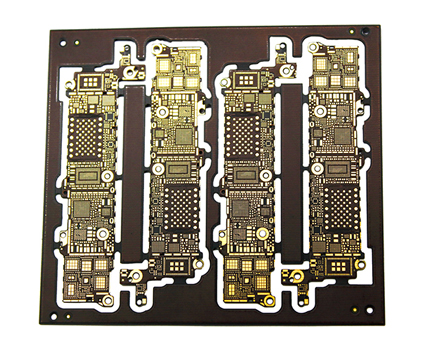-
 Agriculture
Agriculture
-
 Health-Care
Health-Care
-
 Environment
Environment
-
 Construction-Real-Estate
Construction-Real-Estate
-
 Tools-Hardware
Tools-Hardware
-
 Home-Garden
Home-Garden
-
 Furniture
Furniture
-
 Luggage-Bags-Cases
Luggage-Bags-Cases
-
 Medical-devices-Supplies
Medical-devices-Supplies
-
 Gifts-Crafts
Gifts-Crafts
-
 Sports-Entertainment
Sports-Entertainment
-
 Food-Beverage
Food-Beverage
-
 Vehicles-Transportation
Vehicles-Transportation
-
 Power-Transmission
Power-Transmission
-
 Material-Handling
Material-Handling
-
 Renewable-Energy
Renewable-Energy
-
 Safety
Safety
-
 Testing-Instrument-Equipment
Testing-Instrument-Equipment
-
 Construction-Building-Machinery
Construction-Building-Machinery
-
 Pet-Supplies
Pet-Supplies
-
 Personal-Care-Household-Cleaning
Personal-Care-Household-Cleaning
-
 Vehicle-Accessories-Electronics-Tools
Vehicle-Accessories-Electronics-Tools
-
 School-Office-Supplies
School-Office-Supplies
-
 Packaging-Printing
Packaging-Printing
-
 Mother-Kids-Toys
Mother-Kids-Toys
-
 Business-Services
Business-Services
-
 Commercial-Equipment-Machinery
Commercial-Equipment-Machinery
-
 Apparel-Accessories
Apparel-Accessories
-
 Security
Security
-
 Shoes-Accessories
Shoes-Accessories
-
 Vehicle-Parts-Accessories
Vehicle-Parts-Accessories
-
 Jewelry-Eyewear-Watches-Accessories
Jewelry-Eyewear-Watches-Accessories
-
 Lights-Lighting
Lights-Lighting
-
 Fabric-Textile-Raw-Material
Fabric-Textile-Raw-Material
-
 Fabrication-Services
Fabrication-Services
-
 Industrial-Machinery
Industrial-Machinery
-
 Consumer-Electronics
Consumer-Electronics
-
 Electrical-Equipment-Supplies
Electrical-Equipment-Supplies
-
 Electronic-Components-Accessories-Telecommunications
Electronic-Components-Accessories-Telecommunications
-
 Home-Appliances
Home-Appliances
-
 Beauty
Beauty
-
 Chemicals
Chemicals
-
 Rubber-Plastics
Rubber-Plastics
-
 Metals-Alloys
Metals-Alloys
- Masonry Materials
- Curtain Walls & Accessories
- Earthwork Products
- Fireproofing Materials
- Heat Insulation Materials
- Plastic Building Materials
- Building Boards
- Soundproofing Materials
- Timber
- Waterproofing Materials
- Balustrades & Handrails
- Bathroom & Kitchen
- Flooring & Accessories
- Tiles & Accessories
- Door, Window & Accessories
- Fireplaces & Stoves
- Floor Heating Systems & Parts
- Stairs & Stair Parts
- Ceilings
- Elevators & Escalators
- Stone
- Countertops, Vanity Tops & Table Tops
- Mosaics
- Metal Building Materials
- Multifunctional Materials
- Ladders & Scaffoldings
- Mouldings
- Corner Guards
- Decorative Films
- Formwork
- Building & Industrial Glass
- Other Construction & Real Estate
- Wallpapers/Wall panels
- HVAC System & Parts
- Outdoor Facilities
- Prefabricated Buildings
- Festive & Party Supplies
- Bathroom Products
- Household Sundries
- Rain Gear
- Garden Supplies
- Household Cleaning Tools & Accessories
- Lighters & Smoking Accessories
- Home Storage & Organization
- Household Scales
- Smart Home Improvement
- Home Textiles
- Kitchenware
- Drinkware & Accessories
- Dinnerware, Coffee & Wine
- Home Decor
- Golf
- Fitness & Body Building
- Amusement Park Facilities
- Billiards, Board Game,Coin Operated Games
- Musical Instruments
- Outdoor Affordable Luxury Sports
- Camping & Hiking
- Fishing
- Sports Safety&Rehabilitation
- Ball Sports Equipments
- Water Sports
- Winter Sports
- Luxury Travel Equipments
- Sports Shoes, Bags & Accessories
- Cycling
- Other Sports & Entertainment Products
- Artificial Grass&Sports Flooring&Sports Court Equipment
- Scooters
- Food Ingredients
- Honey & Honey Products
- Snacks
- Nuts & Kernels
- Seafood
- Plant & Animal Oil
- Beverages
- Fruit & Vegetable Products
- Frog & Escargot
- Bean Products
- Egg Products
- Dairy Products
- Seasonings & Condiments
- Canned Food
- Instant Food
- Baked Goods
- Other Food & Beverage
- Meat & Poultry
- Confectionery
- Grain Products
- Feminie Care
- Hair Care & Styling
- Body Care
- Hands & Feet Care
- Hygiene Products
- Men's Grooming
- Laundry Cleaning Supplies
- Travel Size & Gift Sets
- Room Deodorizers
- Other Personal Care Products
- Pest Control Products
- Special Household Cleaning
- Floor Cleaning
- Kitchen & Bathroom Cleaning
- Oral Care
- Bath Supplies
- Yellow Pages
- Correction Supplies
- Office Binding Supplies
- Office Cutting Supplies
- Board Erasers
- Office Adhesives & Tapes
- Education Supplies
- Pencil Cases & Bags
- Notebooks & Writing Pads
- File Folder Accessories
- Calendars
- Writing Accessories
- Commercial Office Supplies
- Pencil Sharpeners
- Pens
- Letter Pad/Paper
- Paper Envelopes
- Desk Organizers
- Pencils
- Markers & Highlighters
- Filing Products
- Art Supplies
- Easels
- Badge Holder & Accessories
- Office Paper
- Printer Supplies
- Book Covers
- Other Office & School Supplies
- Stationery Set
- Boards
- Clipboards
- Stamps
- Drafting Supplies
- Stencils
- Electronic Dictionary
- Books
- Map
- Magazines
- Calculators
- Baby & Toddler Toys
- Educational Toys
- Classic Toys
- Dress Up & Pretend Play
- Toy Vehicle
- Stuffed Animals & Plush Toys
- Outdoor Toys & Structures
- Balloons & Accessories
- Baby Food
- Children's Clothing
- Baby Supplies & Products
- Maternity Clothes
- Kids Shoes
- Baby Care
- Novelty & Gag Toys
- Dolls & Accessories
- Puzzle & Games
- Blocks & Model Building Toys
- Toddler Clothing
- Baby Clothing
- Kids' Luggage & Bags
- Arts, Crafts & DIY Toys
- Action & Toy Figures
- Baby Appliances
- Hobbies & Models
- Remote Control Toys
- Promotional Toys
- Pregnancy & Maternity
- Hygiene Products
- Kid's Textile&Bedding
- Novelty & Special Use
- Toy Weapons
- Baby Gifts
- Baby Storage & Organization
- Auto Drive Systems
- ATV/UTV Parts & Accessories
- Marine Parts & Accessories
- Other Auto Parts
- Trailer Parts & Accessories
- Auto Transmission Systems
- Train Parts & Accessories
- Universal Parts
- Railway Parts & Accessories
- Auto Brake Systems
- Aviation Parts & Accessories
- Truck Parts & Accessories
- Auto Suspension Systems
- Auto Lighting Systems
- New Energy Vehicle Parts & Accessories
- Auto Steering Systems
- Wheels, Tires & Accessories
- Bus Parts & Accessories
- Auto Performance Parts
- Cooling System
- Go-Kart & Kart Racer Parts & Accessories
- Air Conditioning Systems
- Heavy Duty Vehicle Parts & Accessories
- Auto Electrical Systems
- Auto Body Systems
- Auto Engine Systems
- Container Parts & Accessories
- Motorcycle Parts & Accessories
- Refrigeration & Heat Exchange Equipment
- Machine Tool Equipment
- Food & Beverage Machinery
- Agricultural Machinery & Equipment
- Apparel & Textile Machinery
- Chemical Machinery
- Packaging Machines
- Paper Production Machinery
- Plastic & Rubber Processing Machinery
- Industrial Robots
- Electronic Products Machinery
- Metal & Metallurgy Machinery
- Woodworking Machinery
- Home Product Manufacturing Machinery
- Machinery Accessories
- Environmental Machinery
- Machinery Service
- Electrical Equipment Manufacturing Machinery
- Industrial Compressors & Parts
- Tobacco & Cigarette Machinery
- Production Line
- Used Industrial Machinery
- Electronics Production Machinery
- Other Machinery & Industrial Equipment
- Camera, Photo & Accessories
- Portable Audio, Video & Accessories
- Television, Home Audio, Video & Accessories
- Video Games & Accessories
- Mobile Phone & Accessories
- Electronic Publications
- Earphone & Headphone & Accessories
- Speakers & Accessories
- Smart Electronics
- TV Receivers & Accessories
- Mobile Phone & Computer Repair Parts
- Chargers, Batteries & Power Supplies
- Used Electronics
- VR, AR, MR Hardware & Software
- Projectors & Presentation Equipments
- Other Consumer Electronics
- Cables & Commonly Used Accessories
- Computer Hardware & Software
- Displays, Signage and Optoelectronics
- Discrete Semiconductors
- Wireless & IoT Module and Products
- Telecommunications
- Connectors, Terminals & Accessories
- Development Boards, Electronic Modules and Kits
- Circuit Protection
- Sensors
- Isolators
- Audio Components and Products
- Integrated Circuits
- Power Supplies
- Relays
- RF, Microwave and RFID
- Electronic Accessories & Supplies
- Passive Components
- PCB & PCBA
- Air Quality Appliances
- Home Appliance Parts
- Heating & Cooling Appliances
- Small Kitchen Appliances
- Laundry Appliances
- Water Heaters
- Water Treatment Appliances
- Refrigerators & Freezers
- Personal Care & Beauty Appliances
- Major Kitchen Appliances
- Cleaning Appliances
- Second-hand Appliances
- Smart Home Appliances
- Other Home Appliances
- Energy Chemicals
- Inorganic Chemicals
- Basic Organic Chemicals
- Agrochemicals
- Admixture & Additives
- Catalysts & Chemical Auxiliary Agents
- Pigments & Dyestuff
- Coating & Paint
- Daily Chemicals
- Polymer
- Organic Intermediate
- Adhesives & Sealants
- Chemical Waste
- Biological Chemical Products
- Surface Treatment Chemicals
- Painting & Coating
- Chemical Reagents
- Flavor & Fragrance
- Non-Explosive Demolition Agents
- Other Chemicals
- Custom Chemical Services
Professional Flexible Printed Circuits Assembly Services Tailored To Meet Specific Client Requirements
In today's rapidly evolving technological landscape, the demand for compact, lightweight, and high-performance electronic devices has never been greater. This surge is driving industries to seek innovative solutions that can seamlessly integrate into complex designs while maintaining reliability and efficiency. At the heart of this transformation lies flexible printed circuits (FPCs), which offer unparalleled advantages over traditional rigid boards by enabling bending, folding, and dynamic configurations. However, the true potential of FPCs is unlocked only when paired with professional assembly services that are meticulously tailored to meet specific client requirements. Such services not only ensure optimal functionality but also empower businesses to stay ahead in competitive markets by delivering customized, cutting-edge products. This article delves into the multifaceted world of professional flexible printed circuits assembly, highlighting how bespoke approaches cater to diverse needs, from design intricacies to quality assurance, ultimately fostering innovation and client satisfaction.
Customized Design and Engineering Support
The foundation of effective flexible printed circuits assembly begins with a deep understanding of each client's unique design challenges and objectives. Professional services prioritize collaborative design processes, where engineers work closely with clients to translate conceptual ideas into practical, manufacturable solutions. This involves assessing factors such as circuit layout, material selection, and mechanical constraints to ensure that the FPCs align with the intended application, whether it's for medical devices, automotive systems, or consumer electronics. By leveraging advanced computer-aided design (CAD) tools and simulation software, providers can predict performance under various conditions, minimizing risks and optimizing the design for durability and efficiency.
Moreover, tailored engineering support extends beyond initial design phases to include prototyping and iterative testing. Clients benefit from rapid prototyping services that allow for quick validation of concepts, enabling adjustments based on real-world feedback. This agile approach reduces time-to-market and ensures that the final product meets exact specifications, such as impedance control for high-frequency applications or thermal management for power-intensive devices. Ultimately, this level of customization empowers clients to innovate without compromise, as every aspect of the FPC assembly is fine-tuned to address their specific technical and operational demands.
Material Selection and Flexibility Optimization
Selecting the right materials is crucial for the performance and longevity of flexible printed circuits, and professional assembly services excel in offering tailored material options based on client requirements. Factors such as operating temperature, environmental exposure, and mechanical stress dictate the choice of substrates, adhesives, and conductive layers. For instance, polyimide films are commonly used for their excellent thermal stability and flexibility, while polyester may be preferred for cost-sensitive applications. By collaborating with clients, providers can recommend materials that balance performance with budget constraints, ensuring that the FPCs withstand harsh conditions like vibrations in automotive settings or sterilization processes in medical equipment.
In addition to material choice, optimizing flexibility involves precise engineering to prevent issues like cracking or delamination. Services include designing circuits with appropriate bend radii and strain relief features, which are critical for dynamic applications where the FPC undergoes repeated flexing. Advanced techniques, such as using stiffeners in specific areas, help maintain structural integrity while allowing movement. This tailored approach ensures that the circuits not only meet mechanical demands but also maintain electrical reliability over their lifespan, providing clients with durable solutions that enhance product lifecycle and reduce maintenance costs.
Advanced Manufacturing and Assembly Techniques
Professional flexible printed circuits assembly employs state-of-the-art manufacturing processes to deliver high-quality, client-specific products. Surface mount technology (SMT) and through-hole assembly are adapted for FPCs, with careful attention to handling delicate materials during soldering and component placement. Automated optical inspection (AOI) and X-ray systems are integrated into production lines to detect defects early, ensuring consistency and precision. These techniques are tailored to accommodate unique client requirements, such as miniaturization for wearable technology or high-density interconnects for aerospace applications, where every millimeter counts.
Furthermore, value-added services like conformal coating and encapsulation are offered to protect circuits from moisture, dust, and chemical exposure, based on the client's operational environment. For example, in industrial automation, FPCs may require robust coatings to endure humid conditions, while in consumer electronics, lightweight protections suffice. By customizing these manufacturing steps, providers ensure that each assembly not only functions flawlessly but also aligns with the client's reliability standards and regulatory compliance needs, fostering trust and long-term partnerships.
Quality Assurance and Testing Protocols
Rigorous quality assurance is a hallmark of professional FPC assembly services, tailored to verify that every circuit meets specific client specifications and industry standards. This begins with in-process checks during manufacturing, such as electrical testing for continuity and insulation resistance, followed by functional tests that simulate real-world operating conditions. Clients can request customized test plans, including thermal cycling to assess performance under temperature variations or flex testing to evaluate durability over thousands of cycles. These protocols help identify potential failures before deployment, reducing the risk of field issues and enhancing product reliability.
Additionally, comprehensive documentation and traceability are provided to support client audits and certifications, such as ISO 9001 or IPC standards. Tailored reporting allows clients to monitor key metrics like yield rates and defect densities, enabling continuous improvement. By aligning quality processes with client expectations, assembly services build confidence in the final product, whether it's for critical healthcare devices or high-volume consumer goods, ensuring that each FPC delivers consistent performance and value.
Supply Chain Management and Scalability
Effective supply chain management is essential for delivering tailored FPC assembly services, as it ensures timely access to components and materials while mitigating risks like shortages or price fluctuations. Professional providers work closely with clients to understand their production volumes and scheduling needs, offering flexible options from low-volume prototypes to mass production. By establishing robust supplier relationships and implementing just-in-time inventory systems, they can adapt to changing client demands, such as sudden design revisions or market-driven scale-ups, without compromising on quality or lead times.
Scalability is further enhanced through agile manufacturing practices, which allow for rapid adjustments in production lines based on client feedback. For startups or enterprises launching new products, this means seamless transitions from development to full-scale manufacturing, supported by logistics services that handle global distribution. This tailored supply chain approach not only optimizes costs but also empowers clients to respond dynamically to market opportunities, solidifying the role of FPC assembly as a strategic partner in innovation and growth.
REPORT































































































































































































































































































































































































































































































































































































